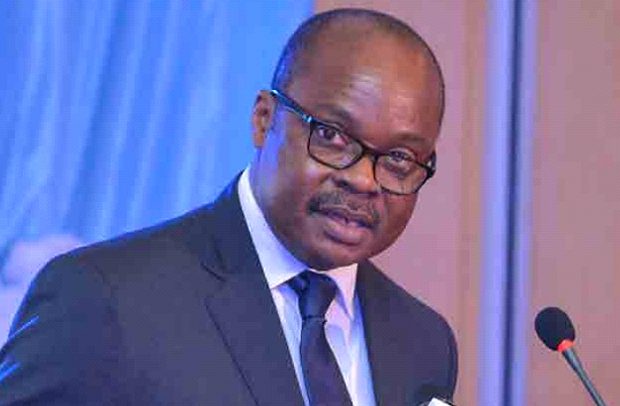Dr Ernest Addison
The economy is now showing faster growth than earlier projected, Dr. Ernest Addison, Governor of the Bank of Ghana (BoG), has announced.
Dr. Addison, who addressed a press conference Monday in Accra, after the 97th Monetary Policy Committee (MPC) meeting, noted, “Macroeconomic conditions have generally improved relative to conditions at the time of the last MPC meeting in September 2020. Global conditions continue to be supportive, domestic inflation is easing, growth prospects are improving, crude oil prices have stabilized, monetary aggregates have expanded but with minimal impact on inflation, the current account deficit is stable, remittances inflow has remained firm, the exchange rate has been stable and reserve buffers continue to remain strong.”
The governor said, “Evidence from high frequency indicators – the CIEA outturn for October 2020, improved consumer and business confidence, and strong liquidity flows – have helped to deliver a faster than expected recovery in economic activity. These flows include payments to contractors, SDI depositors, clients of SEC licenced fund managers, micro and small business loans provided by government through the National Board for Small Scale Industries and the policy and regulatory reliefs to banks and SDIs. Based on these observations, the bank maintained that growth would perform better than earlier projected.”
Inflation
According to him, inflation pressures from events preceding the partial lockdown of the economy in April 2020 were easing.
“From an average of 7.8 per cent in the first quarter, headline inflation steadily rose in the second quarter and peaked at 11.4 per cent in July 2020, driven mainly by the spike in food prices. Since then, headline inflation has trended downwards and is reported at 10.1 per cent for October, driven by both declines in food and non-food prices. Non-food inflation has declined to 8.3 per cent from a peak of 9.9 per cent, and food inflation has also declined from a peak of 15.1 per cent in May to 12.6 per cent in October,” he emphasised.
Governor Addison also said underlying domestic inflationary pressures had continued to moderate, adding that BoG’s core inflation measure, which excluded energy and utility, declined marginally. “While inflation expectations of businesses and consumers moderated, that for the financial sector inched up marginally,” he added.
Bloomberg Commends Interest Rate
According to Bloomberg in a recent survey preceding the MPC’s announcement, forecasts of all seven economists in the survey, matched the decision of the MPC.
The MPC maintained its key interest rate at an eight year low for a fourth straight meeting at 14.5 per cent.
“This is the last MPC decision under the administration of President Akufo-Addo which has taken credit for lowering the benchmark from 25.5 per cent when he took office in January 2017. Akufo-Addo appointed Addison as head of the central bank in March 2017.
“Ghana was one of the first countries in sub-Saharan Africa to lower interest rates to counter the virus shock and its economy has performed better than forecast even as the pandemic stalled activity and the oil price slumped,” Bloomberg noted.
It continued that “the economy will be a key issue in the December 7 polls when Akufo-Addo takes on his predecessor John Dramani Mahama of the opposition National Democratic Congress (NDC) in a bid to renew his term for another four years,” adding that “the inflation rate dropped for a third straight month in October to 10.1 per cent, inching closer to the central bank’s target range of six per cent to 10 per cent.”
Dr. Addison also assured that price growth would return to the eight per cent centre of the band by the second quarter of 2021.
Credit Situation
The latest credit conditions survey conducted in October 2020 showed a net easing in overall credit stance on loans to enterprises and households.
The survey results showed that with the recovery in economic activities underway, demand for loans over the next two months was also expected to rise.
BY Samuel Boadi


